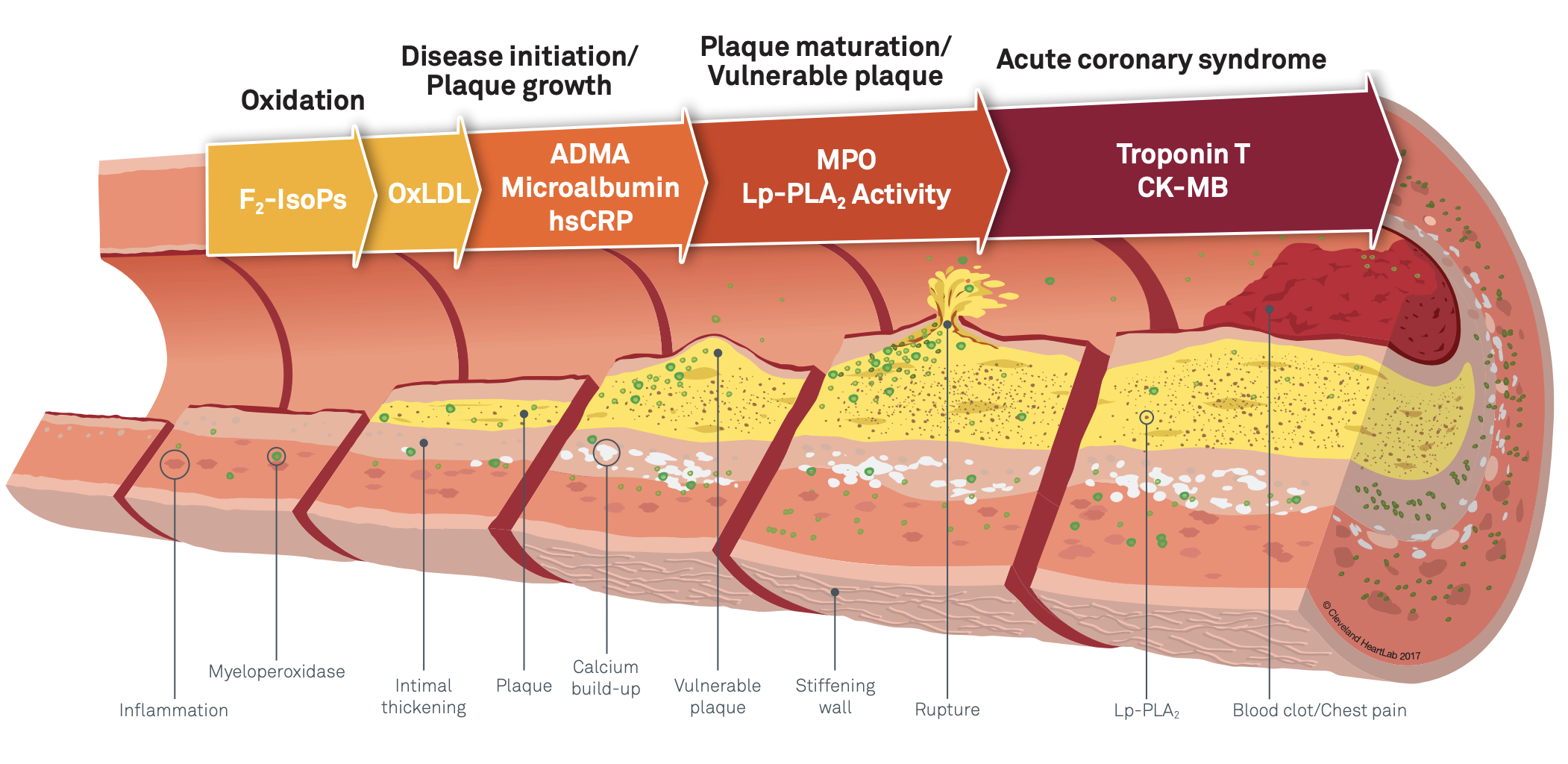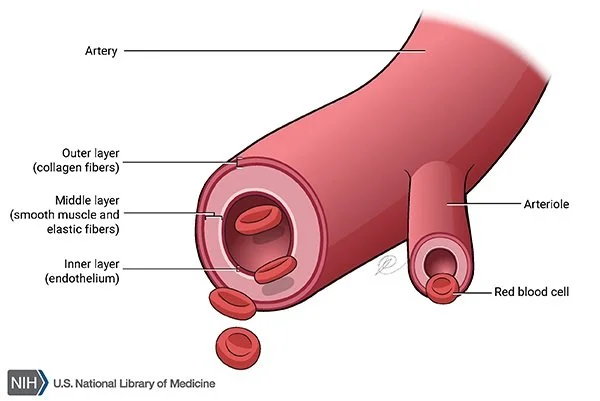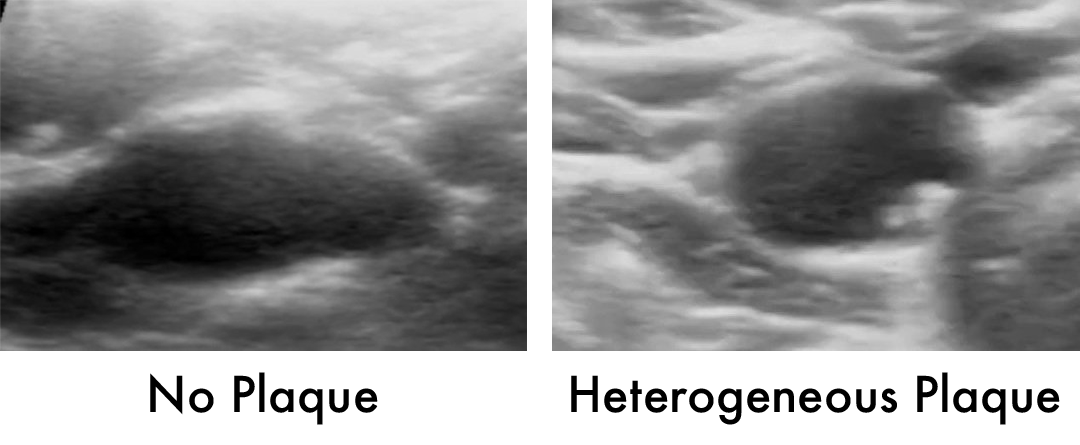CureFAQs: Frequently Asked Questions
Answers to commonly asked arterial and metabolic disease questions.
Categories
Click on one of the categories below or type a keyword into the search bar to get started.
Recent FAQs
What is atherosclerosis?
Atherosclerosis is damage of the artery wall due to inflammation. Healthy arteries are important because they carry oxygen-rich blood from the heart to the entire body’s tissue and organs…
Atherosclerosis is injury and inflammation of the artery wall. Healthy arteries are important because they carry oxygen-rich blood from the heart to the entire body’s tissue and organs. A more accurate description of the most dangerous stage of disease would be “atheritis” or “arteritis” meaning inflammation of the arteries. “Sclerosis” or hardening/calcification is a more benign later healed benign stage of the disease.
Acne is a relevant analogy most of us know. Inflammation in the skin (artery wall) creates pimples/plaque (in areas where turbulence adds mechanical shearing forces) that are prone to rupture (homogeneous and heterogeneous plaque) when new. The preferred path is to heal and leave a scar. When plaque is becoming calcified, it is healing. Rising coronary calcium score is a good, not bad, trend if you are on a healing program.
Atherosclerosis is often called “hardening of the arteries” due to a buildup of calcium deposits in plaque that forms in the arteries. However, calcium presence is actually a sign of healing and increases over time with new plaque development (bad) and current plaque calcifying (good). Plaque that has little or no calcium is less stable, more prone to rupture, and more threatening.
When your artery walls thicken with plaque and narrow the lumen, blood flow to any organ can be reduced or interrupted, leading to disability (temporary or permanent) or death. Stress tests and angiograms are useful to detect this phenomenon. However, the greatest danger is sudden plaque rupture and blood clot formation, resulting in heart attack or stroke. The best test to evaluate this stage is ultrasound for the carotid arteries (affordable) and AI processed coronary artery CT (expensive).
Source: Cleveland Heart Lab
How are arteries important to your health?
The heart pumps blood into the aorta and arteries, which then branch out into smaller blood vessels, eventually delivering the oxygen and nutrients to individual cells. Without healthy arteries, the body's tissues and organs would not receive the oxygen and nutrients needed to function properly. Maintaining healthy arteries is crucial for overall health and wellbeing. Arterial health improvement is a great reflection of reduced oxidate stress, inflammation and overall health improvement.
The artery wall has three layers:
Adventitia (outer layer): composed of connective tissue that supports and protects the artery from external injury.
Media (middle layer): made of smooth muscle and elastic fibers. It is responsible for regulating the diameter of the artery, which affects blood pressure and blood flow.
Intima (inner layer): a thin layer of endothelial cells that regulate all kinds of activity, maintaining a smooth surface for blood to flow through.
Image Source: NIH U.S. National Library of Medicine
What causes plaque to develop in the arteries?
Plaque grows due to complicated interactions between genetics, high blood pressure, lipids, inflammation driven by oxidative stress and insulin resistance, diabetes, and other conditions. Arterial disease is like acne and plaque is like a pimple or pustule.
Plaque progresses as follows:
Homogeneous plaque: This fresh, soft vulnerable plaque is like a new pimple. It is the most dangerous stage of plaque evolution because it is most likely to rupture and cause a heart attack or stroke.
Heterogeneous plaque: This type of plaque is like a pimple that is healing. It can still rupture or erode because inflammation has not resolved. It is the most common stage of plaque seen on imaging of arteries. It is an uneven buildup of inflammatory material, fibrin, and calcium.
Calcified Plaque: This type of plaque is the scar that results when plaque heals. Like any scar, we carry it for the rest of our lives but it is no longer a threat. Calcified plaque is the residual scar of a rupture-related event that could have happened, but didn’t! Calcified plaque is less likely to rupture, but can still cause problems by narrowing the artery and restricting blood flow.
As plaque is developing, it is vulnerable to rupture. A clot forms in the artery lumen. If the clot blocks an artery feeding your heart, you experience a heart attack. If it blocks an artery feeding your brain, you experience a stroke. Both can result in death or disability, but they can also be prevented by making artery walls thinner/less inflamed and healthier.
Atherosclerosis and its progression is more common but not inevitable as we age. Most adults have it starting in the thirties.
Using new science, testing, and treatments, we can halt and reverse the disease in our arteries.
Take the first step to prevent heart attack and stroke. Request a complementary Discovery Zoom Call with Dr. Backs and begin your journey to prevention and a healthy, happy life.
What are some red flags for arterial and other chronic diseases?
There are many conditions associated with arterial and other chronic diseases that lurk silently only to become suddenly lethal. These “red flags” reveal increased risk of heart attack, stroke, and other consequences of chronic disease…
There are many conditions associated with arterial and other chronic diseases that lurk silently only to become suddenly lethal. These “red flags” reveal increased risk of heart attack, stroke, and other consequences of chronic disease. They are not clearly causative or modifiable. But they can motivate curiosity and motivate.
Pay attention to them. The more red flags you recognize, the more you should want to know what may be lurking in you that could suddenly or slowly cost you your health… or even your life.
In addition to the following red flags, keep in mind that men over 40 years of age, women over 50, and individuals of African-American or Hispanic descent are also at higher risk of chronic disease.
Personal or family history of cardiovascular/arterial disease, heart attack, stroke, or Type 2 Diabetes
Age (men over 40 and women over 50)
Gestational diabetes
Elevated cholesterol
Nicotine use in any form (including second-hand smoke)
Psychosocial issues such as depression, anxiety, or stress
High blood pressure
Abdominal obesity (high levels of visceral fat)
Sleep problems (not enough sleep, sleep apnea, etc.)
Periodontal/Endodontal disease
Erectile dysfunction
Rheumatoid arthritis
Lupus
Psoriasis
Migraine headaches
Gout
Polycystic ovaries
Hirsutism (facial hair growth in women)
Osteoporosis
Pre-eclampsia
Breast cancer treatment
COVID spike protein infection or injection
If you fall into any of these categories, take the first step to good health and prevention, and request a complimentary Discovery Zoom Call with Dr. Backs.
What should I know about Covid-19?
Be Empowered. Be Safe. Be Resilient and Resistant to COVID (and other threats) to your health and well being…
Be Empowered. Be Safe. Be Resilient and Resistant to COVID (and other threats) to your health and well being.
At the CureCenter, we believe that working to reverse and cure chronic disease not only improves overall health, but also protects you from infection and other consequences of viruses such as Covid-19. In our experience, resilience and general immunity that accompanies good health is more effective (and safer) than any available vaccine.
There is abundant evidence early treatment protocols, regardless of vaccination choices, can reduce severity of illness, hospitalization, and death from Covid-19. This includes optimized vitamin D levels to 50+ mg/dl.
The CDC has admitted that chronic disease severely increases risk of serious illness or death from Covid-19. The large majority of Covid deaths occur in those with diabetes, arterial disease, obesity, and hypertension. Almost nobody with a vitamin D3 level above 50 died from COVID.
So why are most public health officials not pointing out this obvious opportunity to improve health, reduce mortality overall? It is a combination of complacency and complicity with Big Food, Big Pharma and the rest of the medical industrial complex that is making more profit from vaccines and non-generic therapeutics than from prevention and effective early treatment.
Recently, new voices are suggesting that vaccine promotion should be stopped:
Should I get the Covid-19 vaccine and/or boosters?
Our advice: Think for yourself, consider your circumstances, and then decide.
The older and sicker you are, the more the vaccines make some sense. The healthier and younger you are, consider the risk as well as the purported benefit. Seek information from a variety of sources. Debate, not censorship or suppression of information, is the hallmark of science. “Science” is a process, not a person or specific recommendation or consensus opinion, no matter the source, their seniority or their position of authority.
Covid exposure risk will wax and wane. New variants will emerge. “Vaccines” have not been as effective or safe as originally hoped/hyped. These “vaccines” have made the most sense for highly vulnerable populations but make little, if any, sense for children and young healthy adults. It is the antithesis of safety to recommend these undertested injections in pregnancy for the safety of mother and baby. There have been so many examples of public health recommendations that violate basic time proven principles, especially informed consent and do no harm.
Their main benefit thus far has been reduction in hospitalization and death from Covid-19 in high risk individuals. However, they do not prevent infection or spread. Since this is the usual expectation of vaccines, one would logically ask if they are, in fact, vaccines at all.
At this point in time, there is no way to know enough about the long term safety or efficacy of the mRNA “vaccines.” They were rushed into use far more rapidly than other approved vaccines without proper testing or trials. There is also no evidence that immunity from vaccines is superior to immunity from infection with Covid-19. In fact, the opposite is more likely to be true.
At the CureCenter, we believe in our patients taking an active role in their own health. We suggest that you seek out information and think logically and with less emotion based on what you find. We also suggest that you form an opinion while considering motivation and bias in the sources you seek out. It is also always a good idea to “follow the money.”
If you are convinced of the benefit of the mRNA vaccines, get vaccinated. Advocate for protection for your community, but please do not demand that others follow your lead if they come to an opposite conclusion. Mandates, vaccine passports, and coercion are authoritarian measures that increase resistance and very rarely change minds. All individuals should be free to choose and accept the consequences of their own choices. You get a vaccination to protect yourself, not others.
A few additional things to consider:
Covid-19 proves fatal mainly to those with heart disease and diabetes. There is also evidence that the mRNA vaccines exacerbate arterial endothial inflammation. Both of these can be prevented, reversed, and even put into remission. Control of preexisting arterial inflammation makes inflammation induced by spike protein lesx sever and less of a threat.
Hyperlipidemia is one of the few comorbidities that was asssociated with REDUCED risk of death. Why? Could it be that the common treatment for hyperlipidemia (statins and other antiinflammatory strategies) actually mitigated the inflammation in COVID and saved lives?
If you get spike protein inflammation either from infection or injection, it won’t be as serious if your arteries and metabolism are already healthy.
Further reading: A study on Covid-19 factors
Ignorance may be bliss, but it’s a terrible choice. Be empowered by understanding and improving your arterial age and metabolic health. Get started.
It’s better to address underlying root causes of issues related to Covid death than to jump directly to an unproven vaccine.
How can I most effectively prevent serious illness or death from Covid-19?
The best way to prevent serious illness or death from any infection or disease, including Covid-19, is to treat it early and avoid its source. This involves lifestyle changes such as healthy diet and exercise, proper sleep, reduced stress, and supplements and/or medication when appropriate.
If you or a loved one needs to reverse known or suspected chronic disease, such as arterial disease or Type 2 Diabetes, we suggest you visit the CureCenter Website to schedule a quick and painless 5-minute CureScreen carotid ultrasound. We will use this to determine your threat and put you on the best CurePlan for prevention of events by stopping progression.
If you already know about arterial disease, diabetes, prediabetes, or other chronic illness, start by requesting a complimentary Discovery Zoom Call with Dr. Backs. He will explain how we develop a personalized CurePlan with measurable results that document and motivate improvement in your health.
Don’t allow fear of exposure to Covid-19 keep you from necessary care for other conditions, including support for your mental and oral health.
We offer telemedicine consultations, including for Covid-19 early treatment options. Complete the registration. Click here to get started.
Get Started on the Path to a Long and Healthy Life
Participate in a 15-30 minute Zoom or phone call with Dr. Backs. Your questions about process, cost, insurance coverage and expectations will be answered. You will decide together if the CureCenter and a CurePlan are right for you.
Located in Central Illinois? Schedule your 15-minute CureScreen for arterial disease. It’s quick, painless, and is the first step toward preventing the most common cause of death and disability.

















